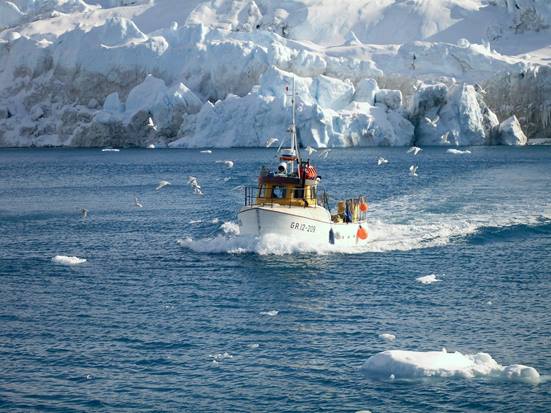Economy
Greenland’s main source of income is fishery. In 2010, 87 percent of the country’s export consisted of fish or fish products (including prawns, which amounted to 55 percent). Greenland’s agriculture primarily consists of vegetables and sheep and reindeer farming. Accordingly the country annually exports a certain amount of skin and fur products – some of which come from the Greenlandic seal.
Over the past decades, the Greenlandic society has experienced progress in other commercial ventures, including the development of a wide range of land-based businesses in the fields of construction and service. This means that 800 companies are registered members of the Greenlandic Employer’s Association today.
Tourism plays a significant role in Greenland’s economy as well. The country receives an increasing number of tourists from all over the world every year. In 2011 Greenlandic hotels had around 213,000 overnight stays. Additionally, Greenland welcomes a large number of cruise tourists. In 2010 more than 350 cruise ships called into Greenlandic ports bringing nearly 29,000 cruise tourists to the country.
During the last years there has been an increasing interest in Greenland’s natural resources from international companies and investors. The Greenlandic subsoil and the surrounding seas are rich in minerals and oil and the enormous amounts of natural resources are expected to become the most important areas of commercial growth in Greenland in the decades to come. Greenland’s government has therefore given greater priority to efforts in this field, which is expected to change the commercial structure of the country in the long term.
In 2010 Greenland’s GDP was approximately 193 billion yen, and the export made up for 35.7 billion yen.
Greenland’s biggest export market is Denmark (80 per cent) and EU (14 per cent). In 2010 Greenland primarily imported goods from Denmark, Canada and USA.
The financial crisis that hit the world economy in 2008 only had little impact on the Greenlandic economy. This is due to the fact that Greenland’s export of fish and fish products has been relatively stable during the last five years, and accordingly the Greenlandic export revenues have not been significantly affected during the global recession.

